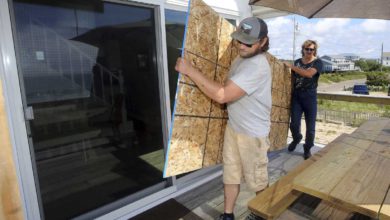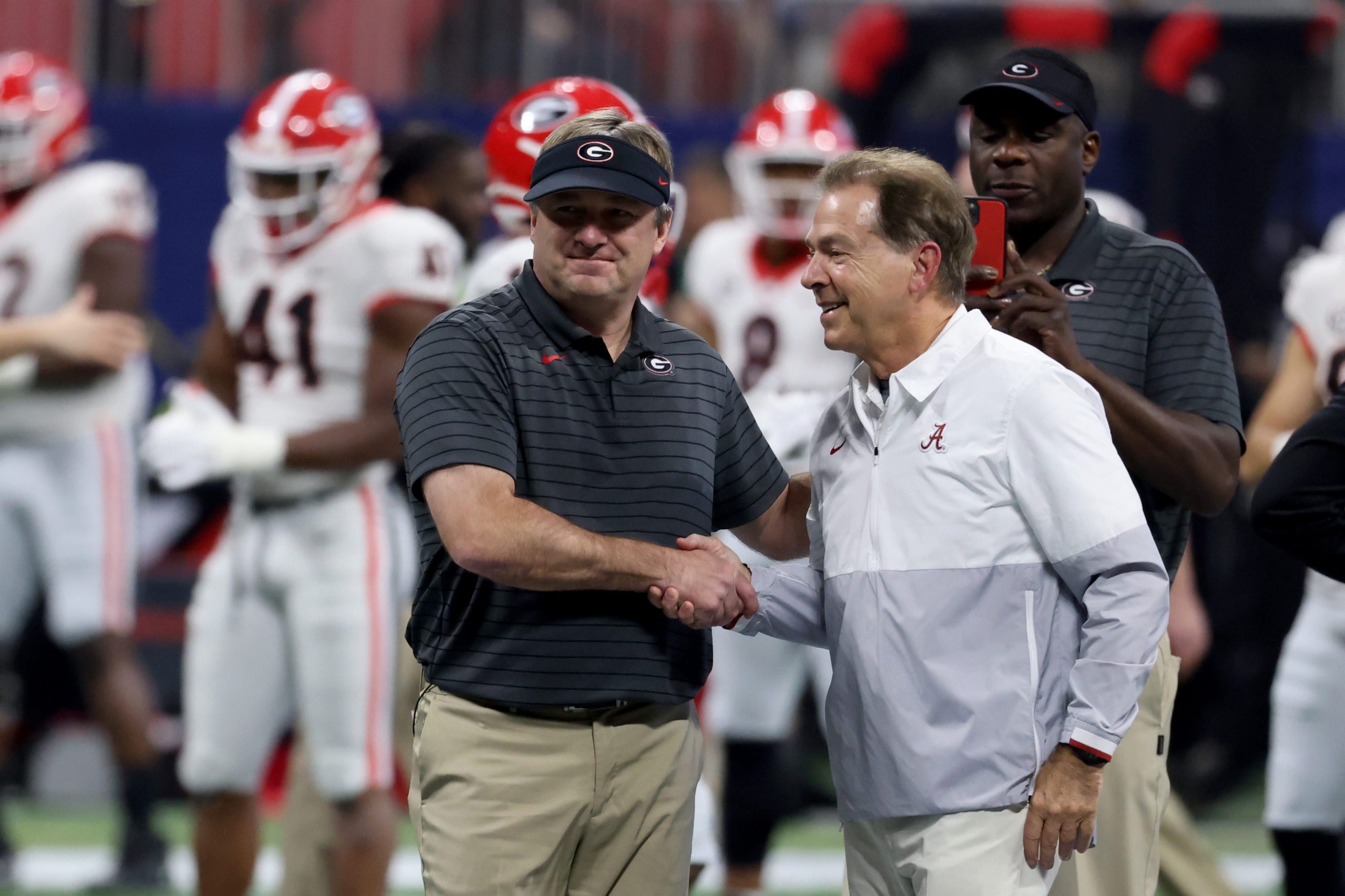
Emails sent by Dr. Anthony Fauci in the early days of the pandemic reflect the thoughts of a patient but weary man who is flabbergasted by his overnight celebrity.
Hundreds of emails were obtained by The Washington Post and other media organizations through Freedom of Information Act requests. Fauci responds to hundreds of interrogators, many he doesn't know, often with in-depth answers.
Fauci also corresponded on multiple occasions with George Gao, a top infectious disease official in China. Gao sent an encouraging note when Fauci was being blasted by Trump supporters who blamed him for supporting social distancing rules that closed schools, tanked the economy and threatened Trump’s reelection prospects.
“Thank you for your kind note,” Fauci replied three days later. “All is well despite some crazy people in this world.”
Fauci marveled at an April 2020 story titled "'Cuomo Crush' and ‘Fauci Fever’ — Sexualization of These Men Is a Real Thing on the Internet." Fauci forwarded the email to someone whose identity was redacted, urging the person to click on the link
“It will blow your mind," Fauci wrote. "Our society is really totally nuts.”
Also in the news:
►Indiana Gov. Eric Holcomb followed the lead of other Republican-led states and announced that Indiana will stop participating in the federal unemployment program June 19. The resulting cut in benefits is designed to encourage Indiana residents to fill low-paying jobs across the state.
►Canada's New Brunswick will allow travel between the province and Maine starting July 1 as long as 75% of New Brunswick residents age 12 and older have received their first dose of a vaccine.
►Alaska has begun offering coronavirus vaccinations at airports in time for the summer travel season. Vaccine eligibility has been expanded to include anyone in Alaska who is at least 12 years old, including visitors from other states or countries.
►At least 540 people are in quarantine after a coronavirus outbreak in the Norwegian capital of Oslo tied to traditional celebrations for high school seniors who drive around in buses and drink.
►The Ohio Lottery planned to announce the next winners of the state’s Vax-a-Million vaccination incentive prizes tonight after the lottery’s Cash Explosion TV show. Most of Ohio's COVID-related health orders, such as mask requirements, capacity limits and social-distancing guidelines, are ending today.
? Today's numbers: The U.S. has more than 33.2 million confirmed coronavirus cases and 595,200 deaths, according to Johns Hopkins University data. The global totals: Over 171 million cases and 3.55 million deaths. More than 135.8 million Americans have been fully vaccinated – 40.9% of the population, according to the CDC.
? What we're reading: The World Health Organization has renamed COVID-19 variants with Greek letter names – and here's why. Read the full story.
Keep refreshing this page for the latest updates. Want more? Sign up for our Coronavirus Watch newsletter for updates to your inbox and join our Facebook group.
Twin cities drop mask mandates
Minnesota's twin cities now have matching mask requirements – none. St. Paul ended it's mask mandate Wednesday, one day after Minneapolis announced it was dropping it's mask requirement. Both cities' leaders cited rising vaccination rates. Minneapolis Mayor Jacob Frey imposed the indoor mask mandate last spring, two months before Gov. Tim Walz issued a similar statewide mask order. Frey said the mandate was lifted because more than 78% of city residents age 15 and older have received at least one COVID-19 vaccine dose.
St. Paul Mayor Melvin Carter acknowledged that his city had not yet reached benchmarks set by local public health experts.
"The reality of a maskless Minneapolis limits the logic and efficacy of maintaining a masking order alone,” Carter said.
Attitudes change as normalcy returns
Many Americans are feeling a shift in attitude and perspective as states reopen, COVID-19 cases drop and vaccination numbers climb. Historians speak of “mass disruptive events” resulting in permanent changes, although it's not clear yet what changes the pandemic will prompt.
Gary Darden, associate professor of history at Fairleigh Dickinson University, defines such events as “something that unfolds over a long period of time and has a profound impact on nearly every American’s life.” Other mass disruptive events include World War I, the Great Depression and the Spanish flu — different, Darden says, from pinpoint catastrophes like 9/11.
The Spanish flu and World War I, for example, are the reasons your bathroom is tiled, he said.
“The trenches they fought in were filthy, full of lice and dead bodies and rot,” said Darden. Tiled bathrooms, linoleum floors and metal bedframes became popular because "you could douse metal and tile in bleach or vinegar.” Read more here.
– Rebecca King, NorthJersey.com
Canada OKs mixing AstraZeneca, Pfizer and Moderna vaccines
Canada’s National Advisory Committee on Immunization says people who got the Oxford-AstraZeneca vaccine for the first dose can be offered either Pfizer-BioNTech or Moderna for the second. The advice affects more than 2 million Canadians who received the Oxford-AstraZeneca vaccine before provinces stopped using it for first doses last month.
In Canada, 41 confirmed or suspected cases of vaccine-induced thrombotic thrombocytopenia have been diagnosed and five people have died.
"This is not a new concept," said Canada's Chief Public Health Officer Dr. Theresa Tam. "Having a multi-dose series in terms of vaccines given by manufacturers is something that public health have used over time for many other vaccines."
Indiana University will require vaccination - but not proof
Indiana University eased its vaccination requirement after a proposal for students and employees to provide proof of the shots drew protests from many state officials. Under the revised requirement, students and employees would be able to attest to their vaccination without having to provide immunization documentation.
The university also said a form would be available for those requesting exemptions from the vaccine requirement for medical or religious reasons.
President Michael McRobbie said in a statement that the university’s primary concern has been ensuring the health and safety of its students and staff.
“This requirement will make a ‘return to normal’ a reality for the fall semester,” he said.
Vaccinations alone may not end pandemic, study suggests
Steady vaccination rates have come with a reduction in infections, hospitalizations and deaths, but a new study suggests that they may not be enough to end the coronavirus pandemic. Masks and social distancing coupled with widespread vaccinations had the biggest impact on limiting infections and deaths, but infections will continue to rise if quarantine protections were lifted, a team of researchers from the University of North Carolina found in a new study.
"Our study suggests that, for a population of 10.5 million, approximately 1.8 million infections and 8,000 deaths could be prevented during 11 months with more efficacious COVID-19 vaccines, higher vaccination coverage, and maintaining NPIs (non-pharmaceutical interventions), such as distancing and use of face masks," they wrote.
Last month, the Centers of Disease Control and Prevention released controversial new guidance that said fully vaccinated Americans don’t need to wear a mask, even indoors, except in crowded settings like airplanes, buses and health care facilities.
EU launches vaccine passport program
The European Union launched the EU Digital COVID Certificate throughout the region. The "digital pass" will create a single hub for all EU citizens to hold their vaccination and COVID-19 status as they cross borders and travel. The digital pass uses unique QR codes for everyone, with paper ones accessible to those without a device. So far, Bulgaria, Czechia, Denmark, Germany, Greece, Croatia and Poland have passed technical tests and started issuing the EU certificates.
New Mexico institutes vaccine lottery with $5 million grand prize
Getting vaccinated against COVID-19 disease "is the right thing to do — for yourself, for your family and for your state,” Gov. Michelle Lujan Grisham said in a statement Tuesday. And there might also be some money in it.
The governor announced that the state health department and the New Mexico Lottery were jointly launching a "Vax 2 the Max" sweepstakes, with $10 million in cash and other prizes available for residents who accept vaccinations against the contagious illness caused by the novel SARS-CoV-2 coronavirus. New Mexico's grand prize, funded by federal pandemic relief money, tops vaccine lottery prizes offered in California and Ohio. California offered a $1.5 million grand prize. New Mexico is one of the poorest states in the country, ranking 48th in per capita income of around $45,800, according to the U.S. Department of Commerce’s Bureau of Economic Analysis.
- Algernon D'Ammassa, Las Cruces Sun-News
Some states vaccinate more people inside prisons than outside
Some states, including in California, have vaccinated a higher rate of individuals inside of prisons than outside, while others struggle to vaccinate their prison populations.
“Education is really key,” Lauren Brinkley-Rubinstein, a professor at the University of North Carolina School of Medicine who leads the COVID Prison Project, told the New York Times. “Especially in a prison context, where there tends to be a lot of distrust of both health care staff and correctional staff, that education piece becomes even more important," she said.
More than 73% of inmates in California and Kansas prisons have received at least one Covid vaccine dose, according to data from the project. By contrast, 56% of all Californians have received their first dose, according to the Times. Prisons populations have been some of the hardest hit. Incarcerated people are infected at a rate more than five times higher than the nation’s overall rate, reported the Equal Justice Intiative.
Contributing: The Associated Press
Source link









